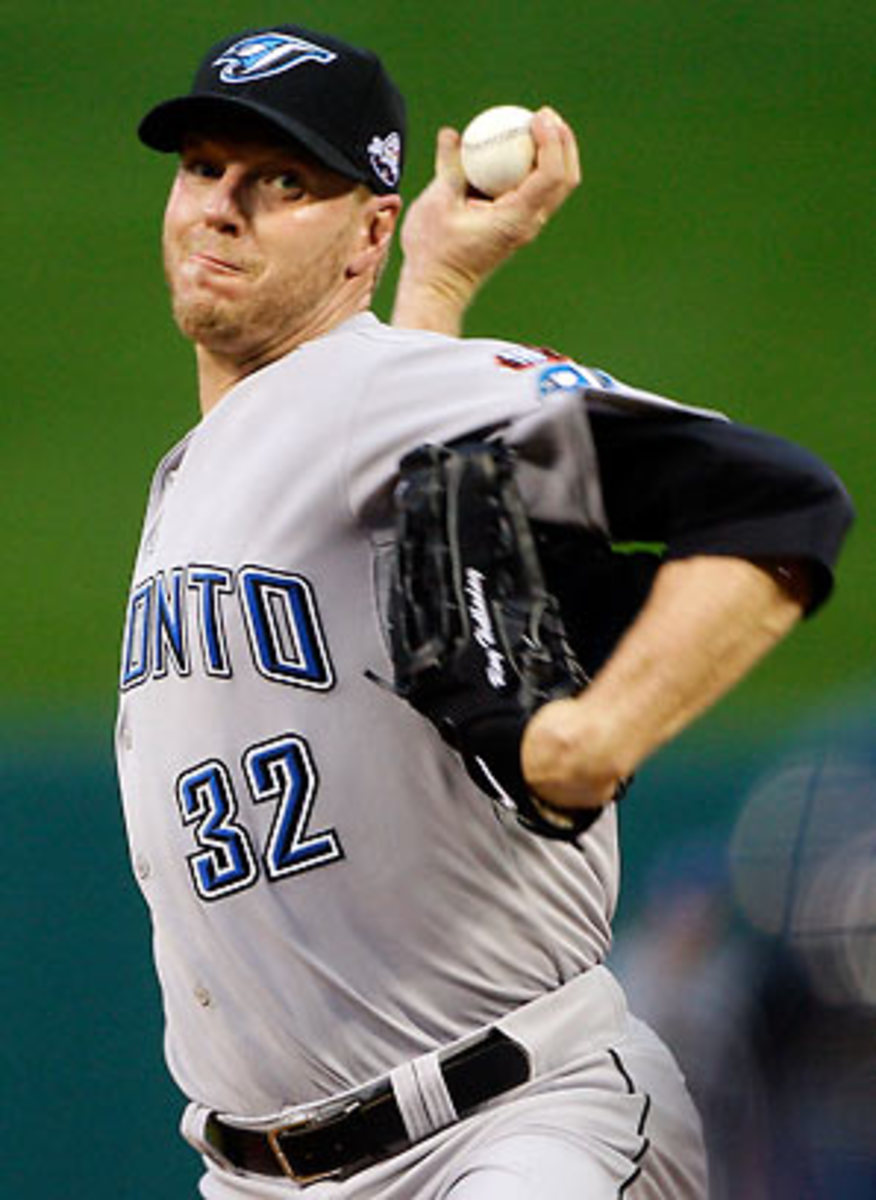
Jays unfairly ripped by media for Halladay negotiations; more notes
So what did people expect? That the Blue Jays should lower their asking price on the best pitcher in baseball when they didn't have to move him in the first place? Would compromising when they didn't have to do so put them in the "winners" category? Ownership really didn't want to dump such a popular franchise player, anyway.
"We said all along the only way we would trade Roy Halladay would be if another club made it worthwhile," Toronto GM J.P. Ricciardi said. "If Erik Bedard can bring back that type of package to the Orioles [five players, including Adam Jones and George Sherrill, in a 2008 deal], we're not doing our job if we can't get that kind of package -- plus -- for the best pitcher in baseball. The reality is it never got close.
"People say we're losers? Then they don't understand the purpose of what we're doing. This was not a salary dump. We didn't have to move him. Taking flat-out minor leaguers in a package for Roy Halladay is something that would have been a lot harder to tell your fans instead of keeping the best pitcher in baseball."
Ricciardi again said he now expects to keep Halladay for 2010 -- no offseason shopping -- though if the Blue Jays are playing under .500 next July, Halladay will be the CC Sabathia-rental of 2010 and could bring back one impact prospect that's better than two compensatory picks. (The Indians turned two months of Sabathia into six years of Matt LaPorta.)
Truth is, the Phillies weren't about to trade a Double-A pitcher (Kyle Drabek) for Halladay -- not when the Indians, a motivated seller because of payroll cuts, put Cliff Lee on the sale rack -- the Angels, supposedly another bidder, didn't talk to the Blue Jays for the final four days leading up to the deadline, and the Red Sox weren't giving up a package that started with Clay Buchholz and Daniel Bard. The market just never developed.
The Blue Jays did succeed with one deal: by accommodating Scott Rolen, 35, who wanted to go back to the Midwest, in a trade to Cincinnati for Edwin Encarnacion and two young arms. Toronto got nine years younger at the position, saved $6 million and gained an upgrade in power. They did sacrifice defense, though, for a guy who may or may not be motivated by a contract year in 2010.
Toronto is not Cleveland, with its budget problems, Pittsburgh, with an organizational model that has been a complete failure, Kansas City, which is awful but still wastes money on second-tier journeymen who don't know how to win, or San Diego, which will check out of the contending business for the next couple of years until its farm system improves. Toronto's problem is that it is a good team in the wrong division. "Good isn't enough," Ricciardi said. "You have to be great."
The Blue Jays have won between 83 and 88 games seven times in the previous 11 years, have a winning record in that span with more wins than the Cubs, Diamondbacks and a dozen other teams -- and still didn't sniff the postseason. Eight National League teams made the playoffs in that time with 88 or fewer wins.
Toronto, even with Halladay, is a longshot to get to 94 wins next year, barring breakouts by Encarnacion and Travis Snider, a resolution at shortstop and full returns to health by its bevy of injured pitchers. But without Halladay they have no shot. To be continued next July ...
• The Red Sox have been great about getting out from under players before they age -- until now. Boston absolutely had to make the deal for Victor Martinez because it could not afford to keep giving full-time at-bats to Jason Varitek, a 37-year-old catcher, and Mike Lowell, a 35-year-old third baseman coming off hip surgery. The elders hit a combined .249 with six home runs in the two months leading up to the trade deadline.
So it goes in today's game, as the actuarial tables get rewritten. Only six players 36 or older have played enough to qualify for the batting title, and only four of them actually play in the field: Raul Ibanez, Chipper Jones, Mike Cameron and Craig Counsell.
• The Pirates embraced the proper philosophy when they fully committed to younger players without worrying about their fans getting all weepy about losing complementary-type veterans who are not core-quality players of a championship team. But the jury will be out for a while on the execution of that strategy. Pittsburgh seems to be loading up on former "name" prospects who haven't been as good as advertised: Lastings Milledge, Gorkys Hernandez, Jose Tabata, Jeff Clement, Craig Hansen, etc. The best, most valuable chip they had was Jason Bay, and they didn't do well cashing that one in (Hansen, Andy LaRoche, Brandon Moss, Bryan Morris). "They've got a lot of quantity, but I don't know how much quality they wound up with," said one executive.
• Get ready for another cold winter. Anybody else notice the complete lack of contract extensions signed this year? The union has, which is why most people expect a collusion charge is coming. The Pirates gave the extension idea a go with Jack Wilson and Freddy Sanchez, but by offering them cuts. Clubs value young players so highly now they would rather give them a shot than invest multiple years in free agents in their 30s. Get ready for more Adam Dunns, Orlando Hudsons, Orlando Cabreras, Bobby Abreus, etc.
• Mark Reynolds continues to develop as a big-time power hitter, like a certain other more-infamous third baseman. Here are the numbers for Reynolds and Alex Rodriguez since Aug. 1 last year:
By the way, Rodriguez now has more at-bats as a Yankee than he did as a Mariner.




